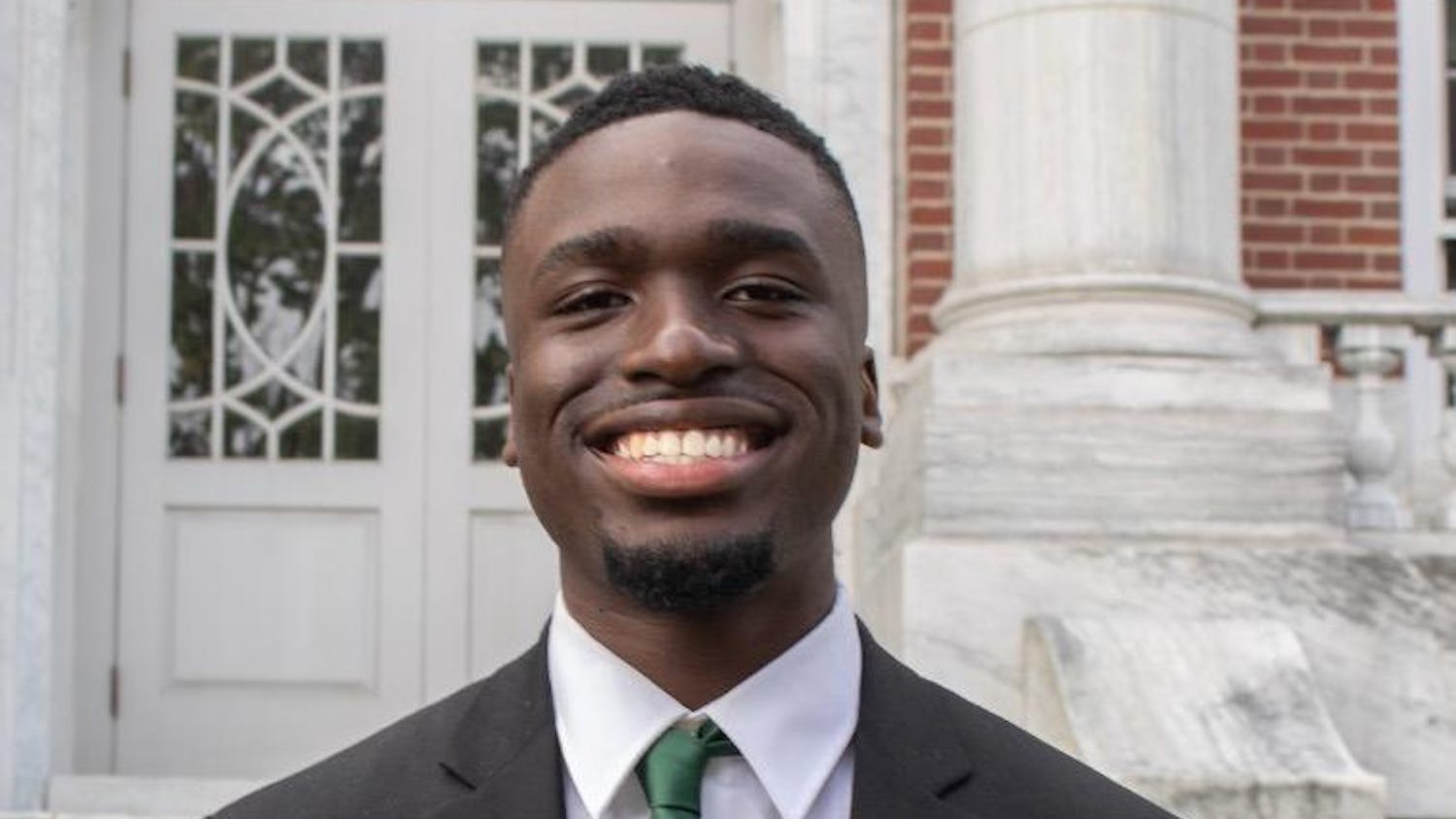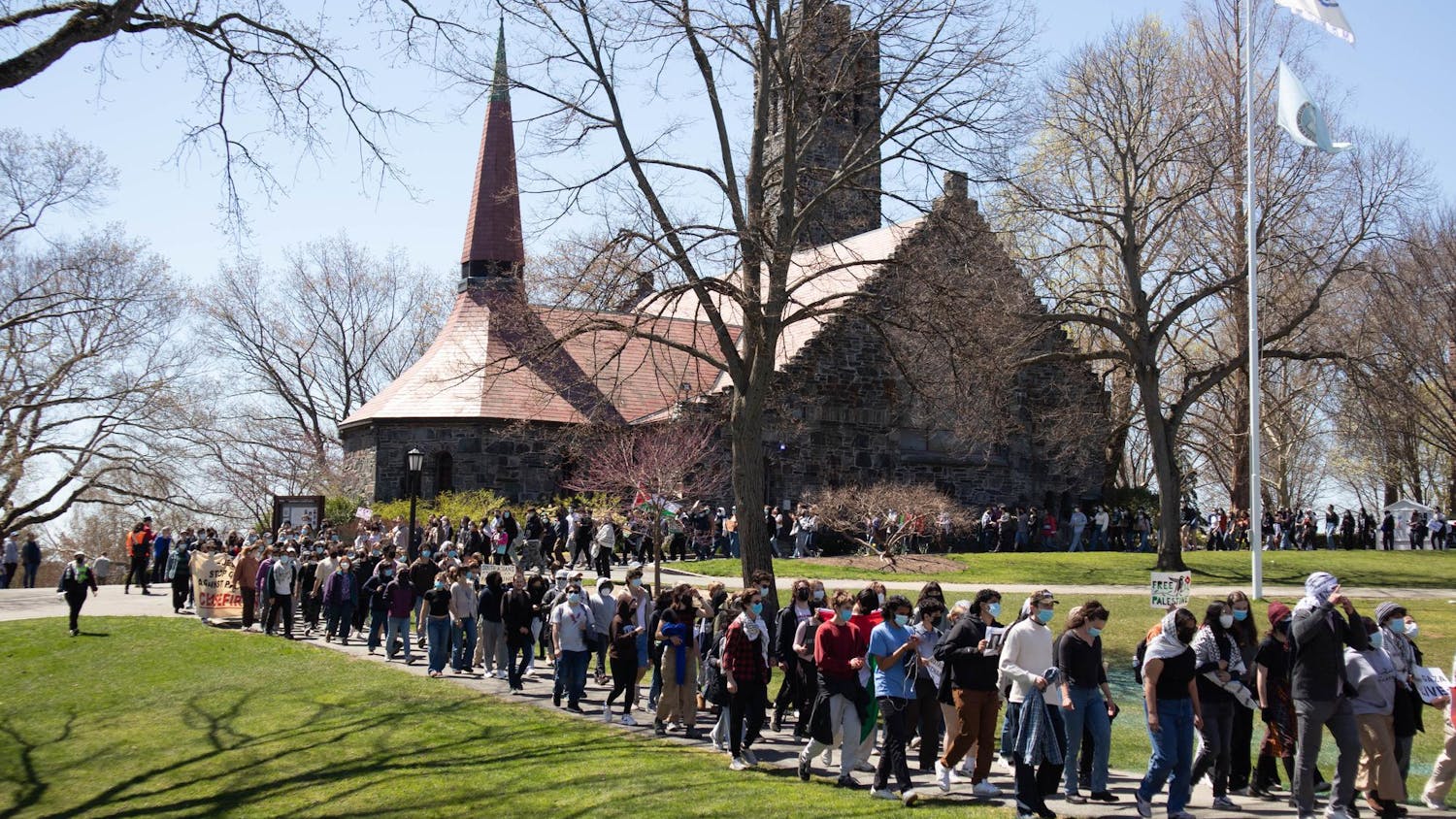A Jewish student found a swastika posted on their door on Sunday night, according to an email sent to the Tufts community by University President Anthony Monaco yesterday. According to the email, both Tufts University Police Department (TUPD) and the Office of Equal Opportunity (OEO) are investigating the incident.
"Any member of our community who is found to be responsible will face disciplinary sanctions consistent with our University policies against discrimination, bias, and hate," he said in the email.
Monaco's response to the incident was strong.
"I condemn this cowardly act of hatred and ignorance. It is a direct attack on our Jewish community and an affront to our values as an institution," he said.
Deputy Chief of TUPD Mark Keith told the Daily that the incident was reported the next morning, Sept. 16, at 11:15 a.m., adding that the incident occurred on campus.
Robert Trestan, the Anti-Defamation League's New England regional director, said in an interview with the Daily that this is event is reflective not of a rise in antisemitism itself but that more people feel emboldened to commit such acts.
"Generally speaking, we are seeing more and more people feeling empowered to be public and vocal about their hatred toward Jews and other groups," he said.
Chris Rossi, dean of student life and engagement, said in an interview with the Daily that he was "disheartened" by the event. He added that he's looking forward to the results of the investigation but emphasized that Student Life was not involved. Dean of Student Affairs and Chief Student Affairs Officer ad interim Nancy Thompson confirmed this.
Rabbi Naftali Brawer, the Neubauer executive director of Tufts Hillel and university Jewish chaplain, was only able to respond by email before press time. In the email, Brawer said Hillel worked with TUPD upon hearing about the event.
"Our first response was to make sure the student was OK, we then worked closely with our university partners and law enforcement at Tufts, to make sure it was reported," he said.
Jill Zellmer, the executive director of the Office of Equal Opportunity, praised Tufts' response to the incident while commenting on the rise of such incidences in an email to the Daily.
"National incidents of this type in college campus communities are on the rise, and Tufts is not an exception. What is different at Tufts, compared to other places, is that we have an excellent track record of promptly responding to and addressing these types of concerns," she said.
Molly Tunis, a member of Alt-J, a Jewish community group on campus, said in an interview with the Daily that she was disappointed with Monaco's email, saying she wasn't comforted by Monaco's response. In particular, Tunis, a senior, pointed to Monaco's focus on "division and disunity" as missing the point.
"To me, the problem isn't division, it's white supremacy," Tunis said.
Rabbi Jordan Braunig, Hillel's director of initiative for innovative community building, said in an interview with the Daily that he was shocked and disheartened when he learned of the event.
"Anti-Semitism is strange in the way that ... you can get gas-lit enough times where you're made to question your experience enough that you start to do that on your own," he said. "My feeling in hearing about this particular event was just a real deep sense of sadness that the type of vitriol and hatred that's symbolized in the swastika would have found its way onto this campus."
Braunig emphasized that Hillel would be a resource to support students affected by the event.
"I think organizationally, we want to support specific students who were touched by this event. We want to open our doors to the wider community and be sure that people have a space to process," he said.
Braunig connected this incident on campus with the larger rise of antisemitic and xenophobic incidents on campus and at large.
This incident comes in light of other antisemitic attacks as well as incidents apparently associated with far-right groups on and off campus.
Last fall, the Daily reported on the overnight hanging of posters bearing the phrase "It's ok to be white," which is linked to white nationalism, on get-out-the-vote signs. In the spring, posters bearing anti-Israel messages were plastered on Tufts Hillel; a month later, the Daily investigated several controversial incidents that occurred on-campus.
According to Rossi, the investigation on the Hillel postering has concluded and was referred to the Student Affairs Office by TUPD.
Micah Kraus, also a member of Alt-J, said he was not surprised by the incident, saying that white supremacy, not just antisemitism, plays a major role on Tufts' campus.
"This doesn't really feel like the rise of white supremacy, it's just an increase in visibility," Kraus, a sophomore, said.
Kraus added that, while the swastika is impactful to the Jewish community, there are events that display white supremacy every day on Tufts' campus that go unnoticed by the administration.
Rabbi Tzvi Backman, who runs the programming at Chabad House, said the incident was an example of cowardice aimed at creating fear on campus.
"The strongest response has to be just increasing the light and the love that exists in this community ... The Tufts community is a community where this is not tolerated," he said.
Backman added that students should not be afraid of the incident.
"I think that the message needs to be clear that we do not get intimidated from things like this, nor do we get afraid, and we should increase in stepping up in expressing our identity in who we are as Jews because that demonstrates our confidence in the community in which we live," he said.
In line with expressing pride in Jewish identities, Backman said that several students had reached out to him requesting to put a mezuzah, a container which includes excerpts from central prayers in Judaism. Mezuzahs are affixed to doorposts as a physical and symbolic reminder of Jewish faith and heritage.
News of this incident from Monaco's office coincided with an event by Deborah Lipstadt, Dorot professor of modern Jewish history and Holocaust studies at Emory University, titled "Antisemitism: Here and Now," which Monaco's email mentioned.
"This incident of anti-Semitism on our own campus demonstrates exactly why Professor Lipstadt’s work and her appearance today are critically important," the email said.
Monaco attended the entire event and provided opening remarks for it.
During the talk, similar to Trestan, Lipstadt said that the rise in such incidents is not indicative of a shift in American politics, but rather the emboldening of white supremacists by people in power such as President Donald Trump.
An email from Student Life sent out to the community last night said there will be a community event today at 12 p.m. in Tufts Hillel to reflect on the event.
Robert Kaplan and Alexander Thompson contributed reporting to this article
More from The Tufts Daily





